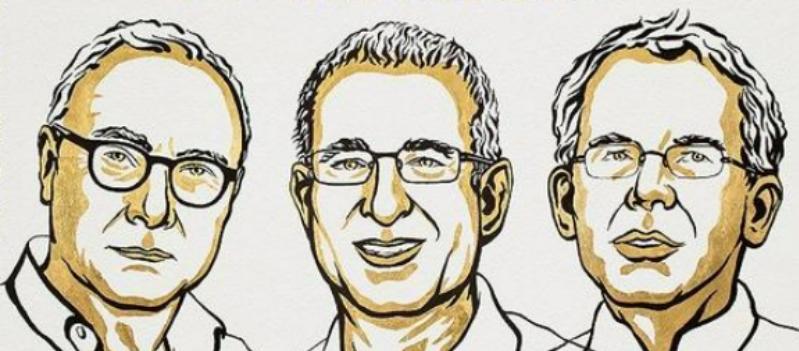
(Source: Nobel Prize official website)
Chen Yongwei / Wen At 18:00 Beijing time on October 11, the winner of the 2021 Nobel Prize in Economics was announced, and three American economists David Card, Joshua D. Angrist, and Guido W. Imbens jointly won the award. David Card was awarded for "Contributions to Empirical Research in Labor Economics" and Joshua D. Angrist and Guido W. Imbens for "Methodological Contributions to CausalIty Analysis."
It is worth mentioning that David Card, a professor at the University of California, Berkeley, has also served as an economics expert in harvard lawsuits.
A few years ago, Harvard University was embroiled in a lawsuit. A group of Asian-American students accused Harvard of discriminatory behavior in admissions and demanded compensation from Harvard. The issue of discrimination is a very serious political problem in the United States, so in the face of accusations, Harvard University does not dare to slacken off. In order to argue that there was no discrimination against specific ethnic groups in admissions, Harvard invited economists to write a report as evidence in court.
We know that Harvard is an economic powerhouse. So, who is the hallowed person who can become an economic expert in the Harvard lawsuit? Surprisingly, he wasn't a Harvard staff member, but Professor David Card from the University of California, Berkeley.
Born in Canada in 1956, Card received his B.A. from Queen's University in 1978 and his Ph.D. in Economics from Princeton University in 1983. Since then, he has successively worked in Top Universities such as Princeton, Columbia, and Harvard, and finally "settled" in Berkeley, and has since coached.
Card's research focuses on labor economics, and his research interests include minimum wages, educational returns, immigration, and inequality.
Of all of Card's papers, perhaps the most famous one was "Minimum Wage and Employment," which he co-published with Kruger in 1994. As we all know, the minimum wage is a very controversial policy issue in economics. Although the public consensus is that the minimum wage law is a law that guarantees the employment conditions of workers, many economists have strong objections to this.
For example, the famous economist Zhang Wuchang has always denounced the minimum wage law as an evil law, and its logic is also very direct: when the government introduces a law to protect the minimum wage for employees, companies will face more hesitation when hiring employees. As a result, the demand for employment in the labour market as a whole will fall, which will lead to a substantial increase in unemployment in the labour market.
Of course, whether it is supporting the minimum wage, opposing the minimum wage, or the views of economists, it is more of a theoretical deduction, and empirical evidence is relatively lacking.
Why is this happening? The reason is that it is more difficult to evaluate a policy. Theoretically, to consider the impact of a policy, it is necessary to make a comparison of the "counterfactual" states of having a policy and not having a policy. But after the policy has been implemented, the "counterfactual" is no longer visible, so it is impossible to make a similar comparison.
So, how to deal with this dilemma? One idea is the so-called "difference in differences". The idea of this method is very similar to experiments in the natural sciences, specifically, it assumes that in reality there are two groups of observers: one group is a control group that accepts policy, and the other group is a control group that does not accept policy. Prior to the introduction of the policy, the two groups had differences in performance, and after the introduction of the policy, this difference will change. Statistically, this difference is the effect of policy. As early as the 19th century, public health scientists used this line of thinking to analyze the cholera problem in London. Kader and others borrowed this idea and analyzed the impact of the minimum wage.
Specifically, Card and Kruger chose California fast food restaurants with changed minimum wage laws as the control group, while Arizona, Florida, Georgia, New Mexico, and Dallas, where minimum wages have not changed, were used as control groups. By constructing a model of the multiplier method of wages and employment levels, he came to two conclusions:
(1) The policy not only increased the incomes of low-income groups in California, but also increased the incomes of workers in the state whose original wages exceeded the minimum wage;
(2) The employment profile of most of California's low-wage population has not been affected. This means that the minimum wage law does not reduce the welfare of the working population, as many economists predict, but instead helps to improve the welfare of workers.
As soon as this paper was published, it caused a great response in the academic community. This effect is not only theoretical, but also due to methodological. After that, Card and his collaborators used these methods to study many labor economics issues. Under their impetus, causal inference methods, including the "multiplier method", began to enter the room and became the mainstream method in the economic community.
It should be noted here that a lot of Card's research was done with Alan Kruger. Sadly, just a few years ago, Kruger had died by suicide. If he's still here, he should probably share the 2021 Nobel Prize with Card.